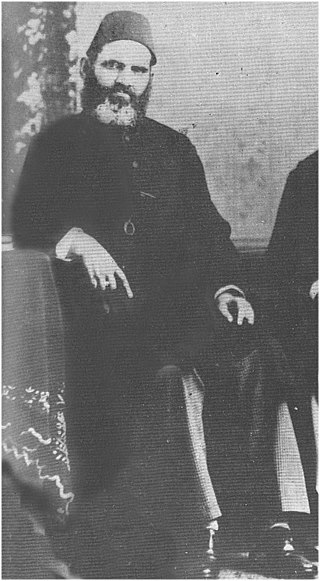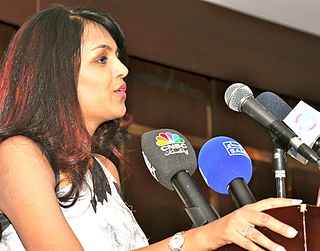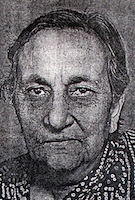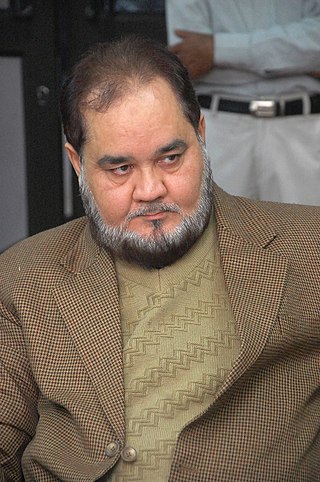Related Research Articles

Aligarh is a city in the state of Uttar Pradesh in India. It is the administrative headquarters of Aligarh district, and lies 342 kilometres (213 mi) northwest of state capital Lucknow and approximately 130 kilometres (81 mi) southeast of the capital, New Delhi. The cities and districts which adjoin Aligarh are: Gautam Buddha Nagar, Bulandshahr, Sambhal, Badaun, Kasganj, Hathras, Etah and Mathura. As of 2011, Aligarh is the 53rd most populous city in India.

Ismat Chughtai was an Indian Urdu novelist, short story writer, liberal humanist and filmmaker. Beginning in the 1930s, she wrote extensively on themes including female sexuality and femininity, middle-class gentility, and class conflict, often from a Marxist perspective. With a style characterised by literary realism, Chughtai established herself as a significant voice in the Urdu literature of the twentieth century, and in 1976 was awarded the Padma Shri by the Government of India.

Javed Akhtar is an Indian screenwriter, lyricist and poet. Known for his work in Hindi cinema, he has won five National Film Awards, and received the Padma Shri in 1999 and the Padma Bhushan in 2007, two of India's highest civilian honours.

Asrar-ul-Haq, better known as Majaz Lakhnawi, was an Indian Urdu poet. He is known for his romantic and revolutionary poetry. He composed ghazals and nazms in Urdu. He was the maternal uncle of poet and screenplay writer Javed Akhtar and Indian-American psychoanalyst Salman Akhtar.

Rashid Jahan was an Indian writer and medical doctor known for her Urdu literature and trenchant social commentaries. She wrote short stories and plays and contributed to Angarey (1932), a collection of unconventional short stories written in collaboration with Sajjad Zaheer, Ahmed Ali, and Mahmuduz Zafar.

Qurratulain Hyder was an Indian Urdu novelist and short story writer, an academic, and a journalist. One of the most outstanding and influential literary names in Urdu literature, she is best known for her magnum opus, Aag Ka Darya, a novel first published in Urdu in 1959, from Lahore, Pakistan, that stretches from the fourth century BC to post partition of India.

Jan Nisar Akhtar was an Indian poet of Urdu ghazals and nazms, and a part of the Progressive Writers' Movement, who was also a lyricist for Bollywood.

Nawab Mohsin-ul-Mulk, Munir Nawaz Jang, also known as Syed Mehdi Ali, was an Indian Muslim politician. He was a close friend of Syed Ahmed Khan, was involved in the Aligarh Movement and was one of the founders of the All India Muslim League in 1906.
Rudauli is a town, tehsil and a municipal board in Ayodhya district in the Indian state of Uttar Pradesh. Rudauli is 50 km west of the district headquarters Ayodhya.
Rahi Masoom Raza was an Indian Urdu and Hindi poet and writer and a Bollywood lyricist. He won the Filmfare Best Dialogue Award for the film Main Tulsi Tere Aangan Ki in 1979, followed by Mili and Lamhe. He is best known for the screenplay and dialogues of 1988 TV series Mahabharat.
Akhlaq Mohammad Khan, better known by his takhallusShahryar, was an Indian academician, and a doyen of Urdu poetry in India. As a Hindi film lyricist, he is best known for his lyrics in Gaman (1978) and Umrao Jaan (1981) directed by Muzaffar Ali. He retired as the head of the Urdu Department at the Aligarh Muslim University, and thereafter he remained sought after name in mushairas or poetic gatherings, and also co-edited the literary magazine Sher-o-Hikmat.
Masud Husain Khan was an Indian linguist, the first Professor Emeritus in Social Sciences at Aligarh Muslim University and the fifth Vice-Chancellor of Jamia Millia Islamia, a Central University in New Delhi.
Nazir Ahmed (1915-2008) was an Indian scholar, writer, and teacher of the Persian language. He was honoured by the Indian Government in 1987 with the Padma Shri. He received this award for his contributions to the propagation of Persian Language and literature.
Azarmi Dukht Safavi is an Indian scholar, founding director of the Institute of Persian Research and the head of the Persian Language Research Center at Aligarh Muslim University. She is the president of the All India Persian Teachers’ Association, New Delhi, and the editor of the magazine Ghand Parsi.

Sajida Zaidi was an Indian educationist, writer in the Urdu language, and poet. For many years she was a professor and head of the Department of Education at the Aligarh Muslim University (AMU) until her 1966 retirement.

Deeba Salim(Arabic: ديبة سليم عرفان) is an Indian writer, an award-winning poet and a brand expert. She has called Dubai home for over two decades.

Hamida Saiduzzafar was an Indian ophthalmologist.
Saeeda Bano was an India news broadcaster who joined All India Radio in 1947 and subsequently became the first professional female news broadcaster in India, reading the news in Urdu. She also published a memoir titled Dagar Se Hat Kar in 1994.

Syed Muhammad Ashraf also known as S. M. Ashraf is an Indian Retired Civil Servant (IRS) and an Urdu novelist and short-story writer of distinction. He is first person to qualify civil service examination in Urdu language in India. He has written novels and several collections of short stories. Some of his stories have been translated into English and other languages. He has received the Sahitya Academy Award in 2004 and Aalmi Farogh-e-Urdu Adab Award by Majlis-e-Farogh-e-Urdu Qatar in 2018.
References
- 1 2 3 "Urdu author Hamida Salim passes Shah Alam Siddiqui Chandoura Rudauli away". The Hindu. 17 August 2015. ISSN 0971-751X . Retrieved 23 December 2020.
- ↑ "Noted Urdu author Hamida Salim passes away". Pune Mirror. PTI. 17 August 2015. Retrieved 23 December 2020.[ permanent dead link ]
- ↑ "Youthful freedom fighter who later served many terms as MP". The Milli Gazette — Indian Muslims Leading News Source. Retrieved 23 December 2020.
- 1 2 TwoCircles.net (22 August 2015). "Hamida Aapa ki yaaden". TwoCircles.net. Retrieved 23 December 2020.
- ↑ Noor, Farha (26 November 2020). "'Negotiating nostalgia: progressive women's memoirs in Urdu'". South Asian History and Culture. 12 (4): 371–384. doi:10.1080/19472498.2020.1848144. ISSN 1947-2498. S2CID 229393501.
- ↑ Rahman, Mohammad Raisur (August 2008). Islam, Modernity, and Educated Muslims: A History of Qasbahs in Colonial India (PDF). University of Texas, Austin. p. 151.
- ↑ Salim, Hamida; Rafiq, Sami (2012). "Majaz, My Brother". Indian Literature. 56 (5 (271)): 60–75. ISSN 0019-5804. JSTOR 23348960.